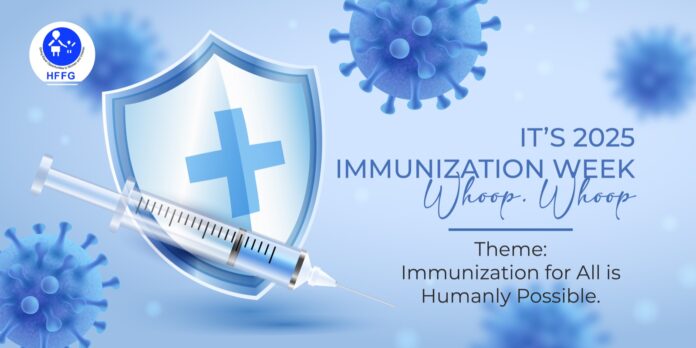Non-governmental organisation, Hope for Future Generations (HFFG) and partners have called on the government to prioritise the timely payment of vaccine co-financing obligation.
HFFG has noted that delays in co-financing payments threaten immunisation gains made, with ripple effects on child welfare, public health security, and economic productivity.
Also, stockouts compromise Ghana’s gains in vaccine-preventable disease control, reduce public trust in the health system, and can result in outbreaks of several diseases.
This was contained in a statement to commemorate the 2025 Immunisation Week 2025 under the theme “Immunization for All is Humanly Possible.”
”Immunisation remains one of the most impactful and cost-effective ways to protect public health. It plays a critical role in achieving herd immunity and preventing the spread of infectious diseases, including during pandemics. As a preventive measure, immunisation reduces long-term pressure on our healthcare system and ensures health and economic benefits for all.
“Between 2000 and 2003 alone, vaccines prevented over 18.8 million future deaths and generated over 250 billion US dollars in economic benefits in lower-income countries. For these reasons, sustained and equitable financing for immunisation must be treated as a national priority by any government committed to preserving the health and future of its citizens,” the statement read in parts.
HFFG has said Ghana needs a ring-fenced emergency preparedness fund to support surveillance, health system resilience, and rapid outbreak preparedness and response, which includes vaccination as a component
Meanwhile, HFFG has reiterated its commitment to collaborating with the government and other stakeholders to ensure equitable health financing and uninterrupted access to essential health services for all Ghanaians.
The organisation is urging policymakers to take swift action to address these critical funding gaps and safeguard the health and well-being of the nation’s citizens.
ALSO READ:

